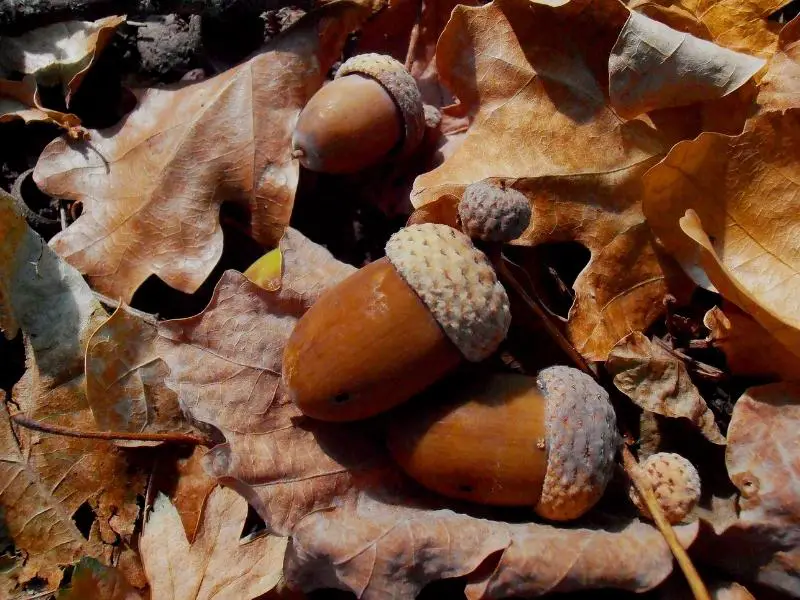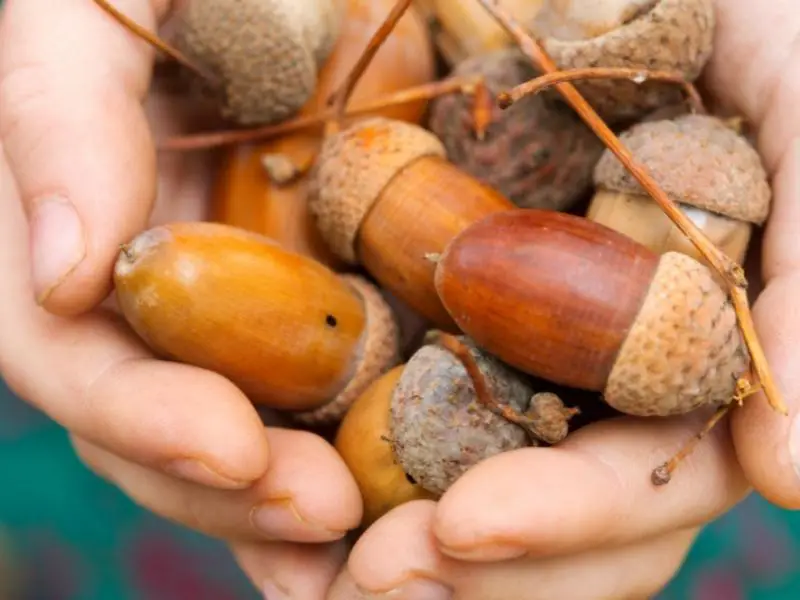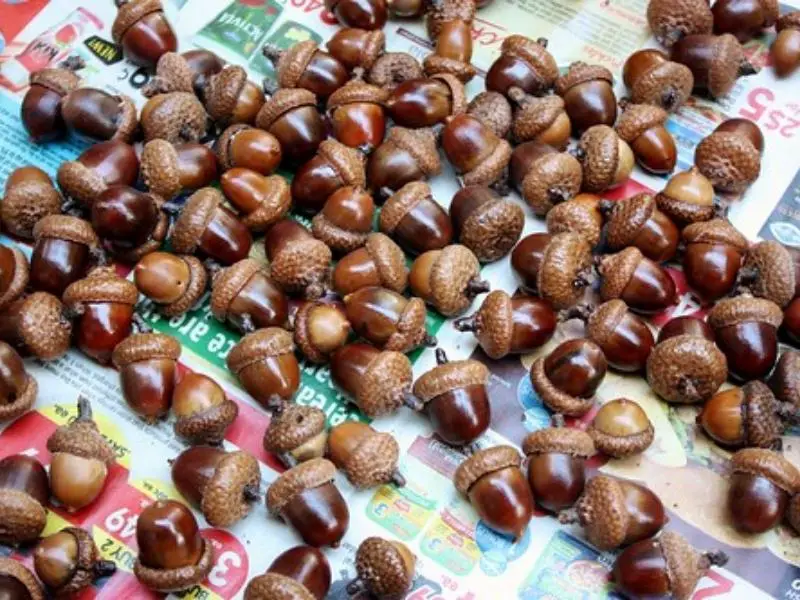Food sources could be hard to come by when things go bad, and scavenging for food may be one of your only options. Knowing what items are safe and nutritious to eat can save your life.
Acorns have been part of the human diet for ages, and there are plenty of reasons they have been included as a food choice. The number one being their high calorie content.
When you are in survival mode, having high-calorie foods is essential to keep you going for longer. There are many more benefits to eating acorns, which we will look at here.
Why Are Acorns The Ultimate Survival Food?

One big reason acorns are the ultimate food is because they are easy to find. Acorns from various oak trees are plentiful across the USA. The easier a food item is to find, the more beneficial it is. You can only eat what you can find.
Due to the ease of access to acorns, it is easy to stock up on this food source, especially during the fall. You will be able to stockpile enough for months if you know how to correctly select and store your acorns.
Another positive about acorns is that they are easy to prepare for consumption. You can often find many things that are edible in nature, but the effort it takes to be able to consume many of these items makes them not particularly popular as a food source.
There are a number of ways to prepare acorns so you can eat them safely.
The biggest and most beneficial aspect of acorns is their high calorie content. Being able to have a food option that can give you an energy boost is a plus when living through disaster times.
You want to make the most of your calorie intake by ingesting the minimum amount possible, since you may not know when your next meal is coming.
Selecting The Perfect Acorn

When gathering your acorns, it is important to know what to look for. When you go to the grocery store to buy fruit and vegetables, you know there are certain signs to look out for that will indicate that the fruit or vegetable is bad.
This is the same for acorn selection. There are some key indicators that will make an acorn unsafe to eat, which we will look at below.
Signs an acorn is not safe to eat:
- Green acorn shells
- Acorns that have turned black in any area
- Acorns missing their caps
- Any foul odors or funny smells coming from the acorn
- Colors that are different from the usual acorn colors, like brown or gold, can be a sign of infection from something like fungus
- Holes, which can indicate worms have gotten into the acorn,
If you ensure you avoid any of these unhealthy acorns, then you will be selecting the best-quality acorns that you will be able to use most effectively for nourishment.
A final test that can be performed on your selected acorns should be the float test. All you need is a bowl, your acorns, and water.
If you put your acorn in the water and it floats, then this indicates a bad acorn that should be discarded. If your acorn sinks, you have a good one, and you can continue to prepare this acorn for consumption.
Selecting acorns can seem like a stressful task, but like with most things, practice makes perfect, and the more you go acorn hunting, the quicker you will be able to find the good acorns in record time.
Preparing Acorns To Eat

Drying Acorns Out
While strictly speaking, this is not a requirement, drying out acorns will certainly help the deshelling and skinning processes.
Putting your acorns in the oven to dry them out is one way to do it. If you find yourself without access to an oven, you can build a stone oven in the wilderness that will do the same job.
Using the sun as a natural heat source to dry out your acorns is also a possibility; it will just take a lot longer to get the job done.
Shelling Your Acorns
Using a nutcracker or a stone, you can remove the shell of your acorn. If you are using a stone, please do so cautiously to ensure you do not completely crush your acorn.
This is an important time to assess the inside of your acorn to check for any discoloration that could indicate it is not safe for consumption.
Removing The Acorn Skin
Another non-essential step, but one that will result in tastier acorns and smoother acorn flour. The papery skin on the outside of the acorn can simply be removed with your fingers.
Grinding The Acorns
It is possible to eat acorns whole, but not everyone can digest whole acorns, so grinding them into smaller chunks makes them more manageable. This is also an optional step.
Removing The Tannins
Acorns naturally have a bitter taste, and removing the tannins will eliminate this pitfall of eating acorns. If you do not mind the bitter taste, then there is no need to perform this step.
Simply take your ground-up acorns and add them to a jar with cold water. Shake the jar up and refrigerate for 24 hours. Repeat the process as many times as it takes to remove the bitter taste.
Re-drying Your Acorns
You can now dry out your acorns or acorn meal one final time, either through air drying or using a food dehydrator, to ensure you really get the moisture out.
Making And Storing Acorn Flour
If you want to make acorn flour with your acorn meal, this is the time to do it. The positive of using and storing acorn flour is that it can be used to make anything that you would use normal flour to make.
This makes it a versatile form to use acorns in.
To make the flour, you will need a blender to grind up your acorns into a finer meal. Then you need to dry this meal out again, preferably in an oven at low heat or air drying for a number of hours.
Continue the process of regrinding until the flour is as fine as you need it to be.
Now that you have your acorn flour, you can store it in the fridge if you plan on using it fairly quickly, as it can go bad due to its properties. For longer-term storage, you can freeze acorn flour for up to 2 years.
Acorn Recipes

There are plenty of acorn recipes available online. You won’t be short of inspiration to try your hand at making various acorn dishes.
Some great ideas include roasted acorns, acorn coffee, and even acorn cookies. Acorns can be used to bring some of your favorite dishes to life, even in more dire circumstances.
Final Thoughts
Acorns are a versatile food option and truly one of the ultimate survival foods.
From being able to source acorns in abundance to being able to easily process them for consumption, they will allow you to stay nourished when disaster strikes if you just know how to handle them.